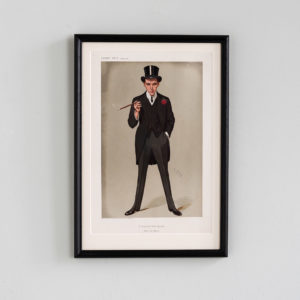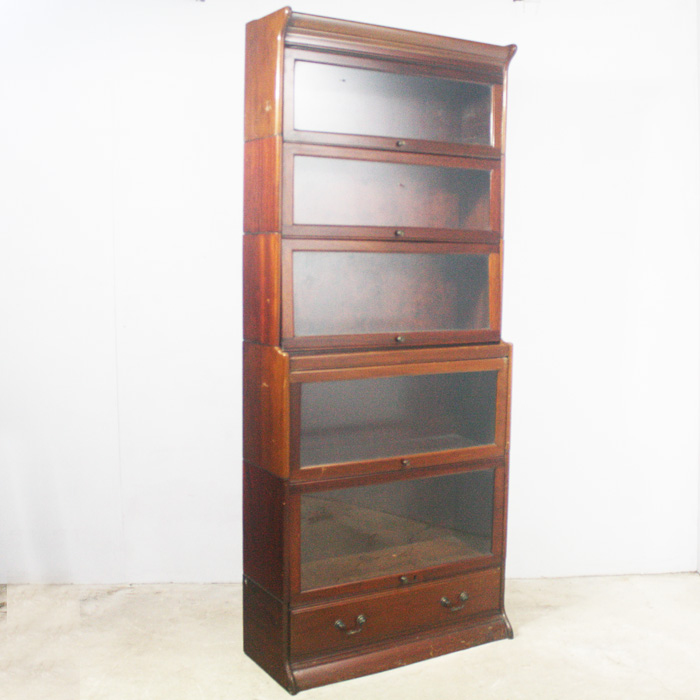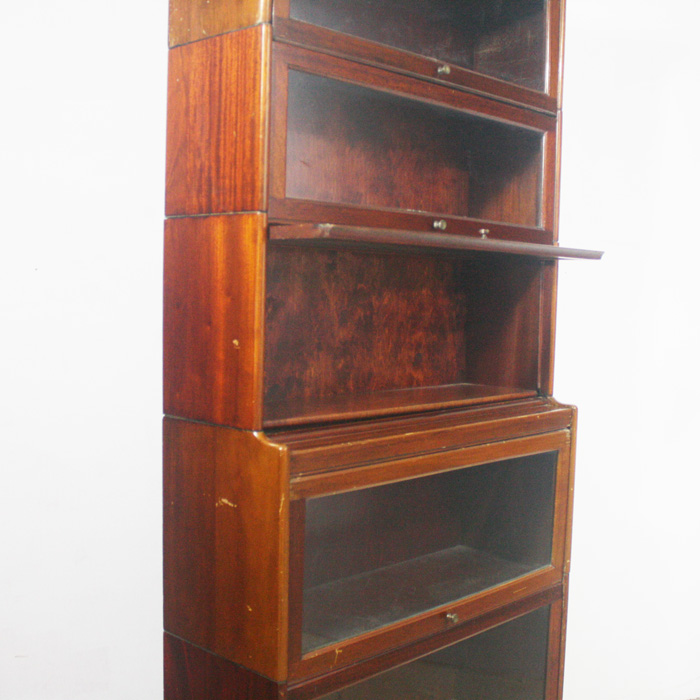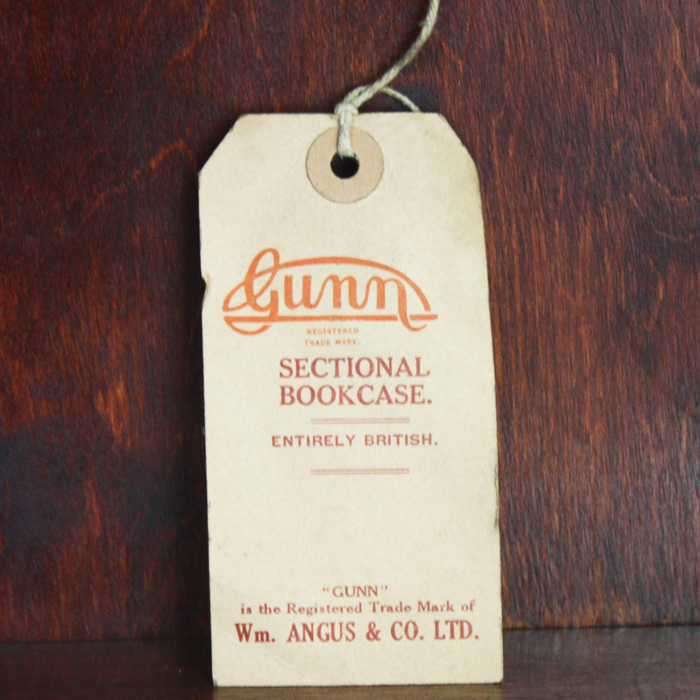Archived Stock - This item is no longer available
A British mahogany sectional bookcase,
the five graduated box sections with lift-and-slide fronts, with a moulded cornice to the top and raised on a plinth base incorporating a drawer,
SOLD OUT
In stock
Gunn Furniture Company
The Gunn Furniture Company’s origins were in Grand Rapids Michigan. William S. Gunn was the company’s founder from 1874 when he added a furniture workshop to his hardware products. After his death in 1909, the general management of the company passed to his son, William A. Gunn.
The company’s initial products were folding beds. As early as 1893 folding beds began to decline in popularity, so the company changed its name and its products to roll-top desks, sectional bookcases, letter filing devices, and similar goods. By 1896 the company boasted that it produced 80 styles of desks. In the 1910s and ‘20s the company produced sectional bookcases that included a module with pigeonholes and a fold-down desktop. Cases were made in walnut, mahogany, imitation mahogany, and quartered oak. In the mid-1920s Gunn introduced its trademark “Lino” desks and cafeteria tables, which had wood frames and black linoleum surfaces.
The piece is stamped “Gunn” and an original label found in the drawer has Gunn as a "William Angus & Co". Company – with a strapline “Entirely British”. Perhaps Wm Angus & Co. was an importer or was making the Gunn sectional bookcases in a licenced arrangement – competing with Globe Wernicke who had also crossed the Atlantic from Michigan and were producing in London and elsewhere. Angus were a top-quality furniture maker, originally from Scotland but had a large London premises at 44-52 Paul Street, London EC2.
Recently Viewed Items
-

A Successful First Speech,
£270A Successful First Speech,
Framed chromolithograph by SPY (Sir Leslie Ward) picturing Mr Fredrick Edwin Smith, later 1st Earl of Birkenhead, MP for Liverpool Walton and boon companion of Sir Winston Churchill until his early death. The subtitle, 'Moab is my Washpot', is from psalm 108 and is a proverbial declaration of total triumph over vanquished foes. F.E Smith is famed in Parliamentary history for his maiden speech in the House, known as 'I Warn The Government', described by the late Paul Johnson as "without question the most famous maiden speech in history, quite unprecedented, and never equalled since." In it he accused the Liberal government of arrogance, dishonesty and heavy handedness after their landslide victory at the election of 1906. He managed to catch David Lloyd George in a clear untruth and won the begrudging admiration of all sides of the house. He declared, in response to a suggestion by Lloyd George to the churches of Wales that the Tories wanted to 'introduce slavery to the hills of Wales' that: "I have no means of judging how heaven will deal with persons who think it decent to make such suggestions. The distinction drawn by the Right Hon. Gentleman is more worthy of the county court than of the Treasury Bench." He then went on famously to declare: "I venture to warn the government that the people of this country will neither forget nor forgive a party which, in the heyday of its triumph, denies to the infant Parliament of the Empire one jot or tittle of that ancient liberty of speech which our predecessors in this House vindicated for themselves at the point of the sword." He was a, according to the ONDB a 'champion of hard-drinking patriotic men' in the face of the temperance movement before his early death of cirrhosis of the liver.£270



